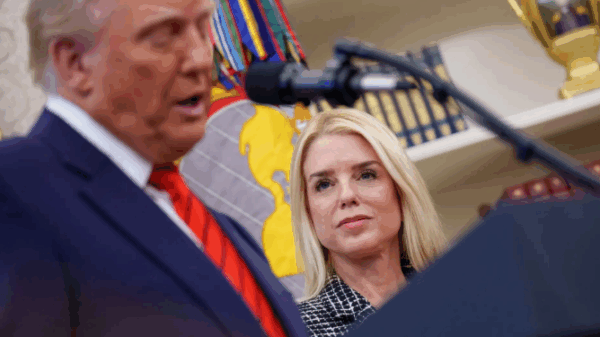Former President Donald Trump’s proposed 25% tariffs on automobile imports from Canada and Mexico could disrupt North America’s tightly integrated auto supply chain, drive up new car prices, and impact millions of jobs, experts warn.
If implemented on Tuesday, the tariffs would affect over $300 billion in annual automotive trade between the U.S., Canada, and Mexico. David Gantz, a trade expert at Rice University’s Baker Institute, described the tariffs as an “existential threat” to the industry.
“The cost of everything imported from Mexico or Canada that goes into a U.S.-assembled car will increase,” Gantz said.
Higher Prices and Industry Chaos
The impact on consumers could be severe. Kelley Blue Book estimates that the average price of a new car, which is already close to $49,000, could rise by $3,000 or more. Full-size pickup trucks—some of the best-selling vehicles in the U.S.—could see price hikes of $10,000.
The tariffs could also trigger retaliatory measures from Canada and Mexico, which could slow down auto sales and potentially push both countries into recession while stagnating U.S. economic growth.
“The economic impact of sustained 25% tariffs would be severe,” said Andrew Foran of TD Economics, who predicts a 13.6% drop in annual auto sales in Canada and a 10.6% decline in the U.S.
North America’s Auto Supply Chain at Risk
Since 1965, when the U.S. and Canada eliminated tariffs on auto trade, North America has developed a highly interconnected car manufacturing network. Mexico joined the system with NAFTA in 1994 and again under the United States-Mexico-Canada Agreement (USMCA) in 2020.
Brett House, an economics professor at Columbia University, explained the benefits of this system:
“North America is an incredibly competitive place to build automobiles, leveraging Canada’s steel, Mexico’s lower-cost labor, and U.S. technology.”
Currently, over half of the 8 million cars and light trucks imported to the U.S. come from Mexico and Canada. Both countries are also top buyers of U.S.-made vehicles, accounting for 53% of America’s auto exports.
Imposing new tariffs would undermine this system, adding bureaucratic complications and increased costs at every stage of production.
More Costs, More Red Tape
A White House official, speaking on the condition of anonymity, said that tariffs would apply each time a component crosses the border. This could lead to multiple layers of taxation on individual parts, further driving up costs.
Automakers are already facing rising material costs due to Trump’s plan to increase tariffs on foreign steel and aluminum. As of March 12, steel imports from Canada and Mexico will face 50% duties, up from 25%, while aluminum tariffs will double from 10% to 25%.
K. Venkatesh Prasad, a senior vice president at the Center for Automotive Research, said this could have long-term consequences for American consumers.
“A decade ago, the bottom 20% of earners couldn’t afford a new car. Today, nearly 40% of the U.S. population is priced out of the new car market.”
Industry Leaders Express Concern
Ford CEO Jim Farley criticized the potential tariffs, saying the industry is facing “a lot of cost and a lot of chaos.”
General Motors CEO Mary Barra admitted the company is developing contingency plans, while Stellantis chairman John Elkann remained optimistic that Trump’s policies could boost U.S. jobs.
The timing is particularly difficult for automakers as they try to transition from gasoline to electric vehicles (EVs). Tariffs could cut into sales, limiting funds needed to invest in EV production.
Trump’s Motivation: Trade or Immigration?
Trump has justified the tariffs as a way to curb illegal immigration and fentanyl smuggling across U.S. borders. However, data suggests that Canada is not a major source of fentanyl, with only 43 pounds seized at the U.S.-Canada border last year, compared to 21,100 pounds from Mexico.
Some analysts believe Trump’s true goal is to renegotiate the USMCA in 2025, pushing for stricter provisions to bring more auto production back to the U.S.
A Turbulent Road Ahead
For now, the North American auto industry faces uncertainty. As TD Economics’ Foran warns, the region should prepare for a “prolonged period of trade disruptions and uncertainty.”








































